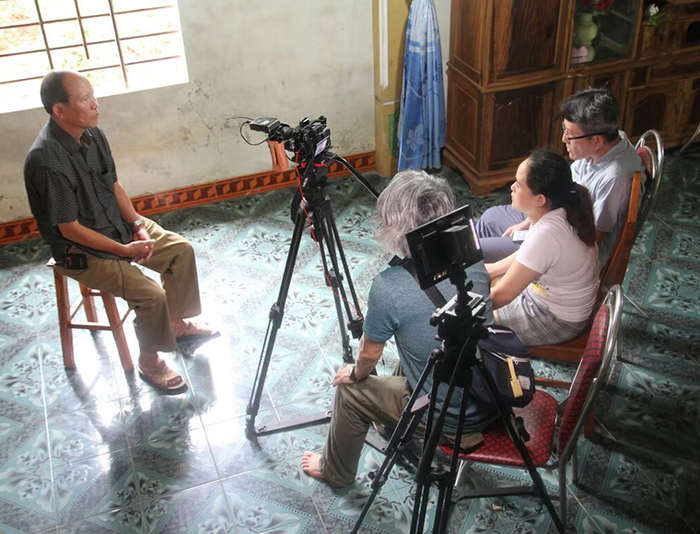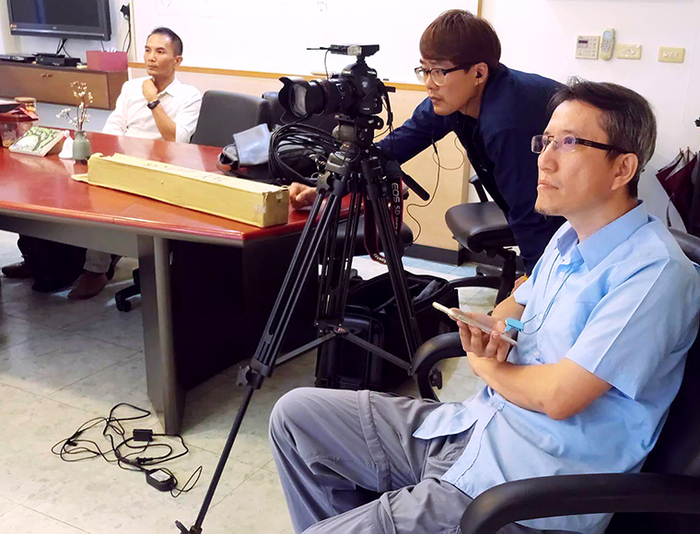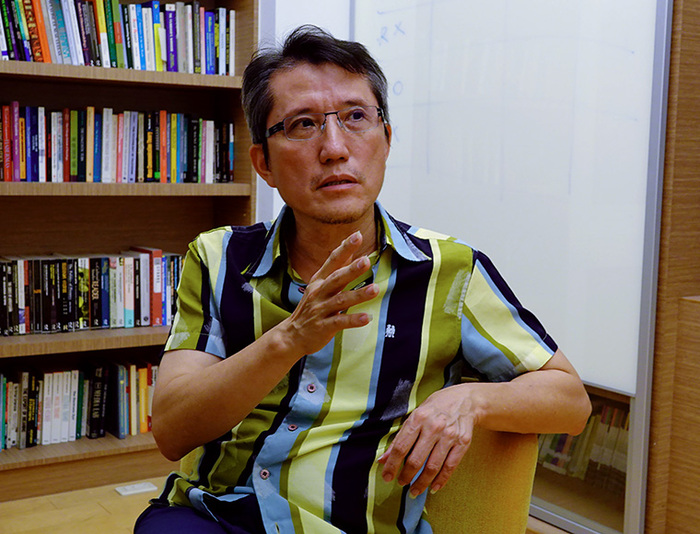Breaking away from the binary opposition to explore the issue of migrant workers, Tsung-Lung Tsai from the Department of Communication, "And Miles to Go Before I Sleep" won the Golden Horse Film Festival for the Best Documentary Feature.



In Taiwan, chases between missing migrant workers and the police often occur, and incidents of legal migrant workers being injured or killed due to work and residential safety issues are also reported from time to time. Tsung-Lung Tsai, an associate professor of the Department of Communication of National Chung Cheng University who has been concerned about social issues for a long time, started from the case of a missing migrant worker who was shot nine times by the police five years ago, and filmed the documentary "And Miles to Go Before I Sleep." The film presents the plight of migrant workers in Taiwan through multiple news events, and also releases 30 minutes of the body camera footage to convey to the public that the tragedies of migrant workers continue to occur not only because of the failure of migrant labor system, but also because of the Taiwanese's mentality towards migrant workers. It is also one of the reasons that it won the Best Documentary Feature at the 59th Golden Horse Film Festival and Awards.
“Incidents occur in the chase between migrant workers and the police can be seen from time to time in Taiwan. This is a phenomenon in Taiwanese society at present, and we are no longer surprised by it.” However, on the last day of August 2017, Nguyen Quoc Phi, a Vietnamese runaway migrant worker was chased by the police for being reported by the public as trying to steal a car, and eventually died after being shot nine times during the chase. This news caught Director Tsai's attention, and the question, "why would it take nine shots to catch a migrant worker" also became the starting point for the documentary "And Miles to Go Before I Sleep."
In "And Miles to Go Before I Sleep," not only the case of Nguyen Quoc Phi, there are also other cases of missing migrant workers who fell from construction sites or jump off bridges in order to avoid the police, and there are other tragic cases where legal migrant workers die from being sprayed hydrofluoric acid, dormitory fire incidents and the collapse of Nanfang’ou Bridge. Almost all of these incidents happened within the past ten years, and when gathered together, they are like a chronicle of the deaths of Southeast Asian migrant workers in Taiwan. The documentary fully revealed the police's body camera footage of Nguyen Quoc Phi's shooting incident, which shows the police officers and onlookers' indifference towards his painful struggle during the 30 minutes when he was transported to the hospital. "Is it really just these nine bullets that killed him?"
"This documentary is not just about Nguyen Quoc Phi personally, but about the matter of 'discrimination'." Tsung-Lung Tsai said that when migrant workers come to Taiwan to make a living, they first face high agency fees, and then the policies and systems that prevent them from freely changing employers, workplace discrimination and residential safety, all of which clearly show the class and racial discrimination. However, in the case of Nguyen Quoc Phi, Director Tsai also pointed out that migrant workers and police officers are both victims, and the blame cannot only be attributed to the police officers who opened fire, but more to the problem of the training system. Behind the support from the officers and the public for the bold use of guns, there are problems with relevant supporting measures, such as the insufficient police equipment and the lack of life education, which are not the police's personal responsibility.
"Presenting both sides" has always been the principle of Tsung-Lung Tsai's documentary filming. "And Miles to Go Before I Sleep" still maintains the same style. Therefore, in addition to Quoc Phi's family members and migrant workers' groups, he also interviewed senior policemen, policemen's families, and migrant-worker agents. Director Tsai said that he does not want to focus on the individual police officers and bring the whole incident back to a state of binary opposition, because this will not help the overall society and the system. As for the positive and negative criticisms that followed after winning the Best Documentary Feature, Tsung-Lung Tsai admitted that it was impossible to predict the reaction of the mainstream society, because this film challenged the diverse and inclusive culture of which Taiwanese people are proud, and this is also the reason why there were more than a hundred people during the test screening, and the reason why public welfare special screenings all over Taiwan have already been planned no matter whether it wins the award or not, since we aim to bring audience the energy to change while learning more about responses from outside the echo chamber.
Looking back on the production of "And Miles to Go Before I Sleep," Tsung-Lung Tsai, who is used to the difficulties of the documentary production, said that this time, whether it was about the interviewees or the fact that they stayed in Vietnam for less than a week, the filming process was unexpectedly smooth. "It is less difficult than painful." Tsung-Lung Tsai said watching the body camera footage was especially painful, since he had to continue watching it repeatedly for the past four years in order for editing, and that sometimes he would even unconsciously fall into the emotions and burst out crying while driving. Fortunately, there was a group composed of new immigrants, called Khuôn viên văn hoá Việt Nam, who constantly supported him, and despite the burden of the teaching at CCU, because of the support from the friendly teachers and students of the Department of Communication and the recognition of the school, he could have no worries on the road of creation.

